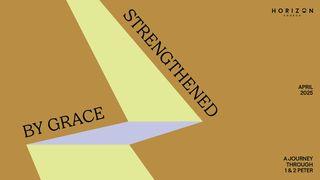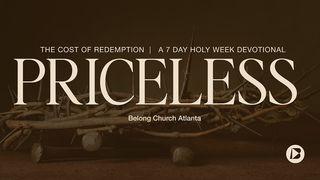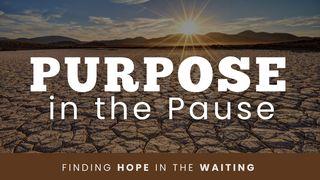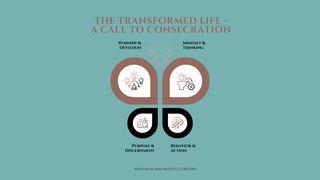Hope When It HurtsSample

"Power in Weakness"
Americans will do almost anything to appear strong, capable, and worthy of admiration. We exercise our bodies with intensity, climb the corporate ladder at the expense of integrity, and struggle to accept the help of other people. Our society works by the principle that the way up is the road to success and value.
When we transfer this into our Christian faith, here is what happens: We believe that comfort is a right that Christ would never remove, and that success indicates a godly Christian life. This sense of entitlement has therefore deeply impacted the way Christians interpret and respond to suffering.
Think about how we talk about and react to a trial. We try to avoid it. We complain about it. We think we don’t deserve it. We’re embarrassed by it. We commiserate with others about it. We believe that God is mad at us, or just plain angry.
We hate weakness and will do almost anything to escape it.
One big problem with this approach is that weakness is real. Behind our masks, everyone is weak. It’s inbuilt into our humanness in this world. We can’t run from it, and thankfully we don’t need to. What we need is a biblical understanding of the value of weakness (that’s a strange-sounding phrase!), and how suffering is the tool God uses to expose it (that’s another strange idea!).
Everything changes when we see weakness and suffering in the light of the gospel. For it is through human weakness that God’s strength upholds us and is displayed to the world.
Here is the Bible’s description of who a Christian is: “We [are those who] have this treasure in jars of clay.” What treasure? The glorious gospel: the work of Jesus Christ to save sinners by grace through faith. And what is clay? A brittle, easily broken substance. And that’s what I am. That’s what you are.
God has a purpose in placing such a treasure in such a jar. We are unfit, breakable, disposable vessels, and God has decided to use our weaknesses to display his power and love. A jar of clay might be cracked in a few places, making it unusable in the world’s eyes, but God sees these deficiencies as a means to pour out and reveal more of himself.
Americans will do almost anything to appear strong, capable, and worthy of admiration. We exercise our bodies with intensity, climb the corporate ladder at the expense of integrity, and struggle to accept the help of other people. Our society works by the principle that the way up is the road to success and value.
When we transfer this into our Christian faith, here is what happens: We believe that comfort is a right that Christ would never remove, and that success indicates a godly Christian life. This sense of entitlement has therefore deeply impacted the way Christians interpret and respond to suffering.
Think about how we talk about and react to a trial. We try to avoid it. We complain about it. We think we don’t deserve it. We’re embarrassed by it. We commiserate with others about it. We believe that God is mad at us, or just plain angry.
We hate weakness and will do almost anything to escape it.
One big problem with this approach is that weakness is real. Behind our masks, everyone is weak. It’s inbuilt into our humanness in this world. We can’t run from it, and thankfully we don’t need to. What we need is a biblical understanding of the value of weakness (that’s a strange-sounding phrase!), and how suffering is the tool God uses to expose it (that’s another strange idea!).
Everything changes when we see weakness and suffering in the light of the gospel. For it is through human weakness that God’s strength upholds us and is displayed to the world.
Here is the Bible’s description of who a Christian is: “We [are those who] have this treasure in jars of clay.” What treasure? The glorious gospel: the work of Jesus Christ to save sinners by grace through faith. And what is clay? A brittle, easily broken substance. And that’s what I am. That’s what you are.
God has a purpose in placing such a treasure in such a jar. We are unfit, breakable, disposable vessels, and God has decided to use our weaknesses to display his power and love. A jar of clay might be cracked in a few places, making it unusable in the world’s eyes, but God sees these deficiencies as a means to pour out and reveal more of himself.
Scripture
About this Plan

"Life hurts. We’re no strangers to this fact. It’s why we're writing this. And not simply because life hurts, but because there’s hope even when it does. There’s more to our suffering than meets the eye." Walking through 2 Corinthians 4 and 5, this plan is from Kristen Wetherell and Sarah Walton’s new book, “Hope When It Hurts.”
More
Related plans

Financial Discipleship – the Bible on Restitution

Horizon Church April Bible Reading Plan - Strengthened by Grace: A Journey Through 1 & 2 Peter

The Shift: Part 3

A New Way to Love Your Neighbor

Priceless

SIMPLE: Returning to the Essence of Easter

Redeeming Anger: Turning Pain Into Purpose

Purpose in the Pause: Finding Hope in the Waiting

Daily Bible Reading— April 2025, God’s Strengthening Word: Assurance of Hope in Christ Jesus
